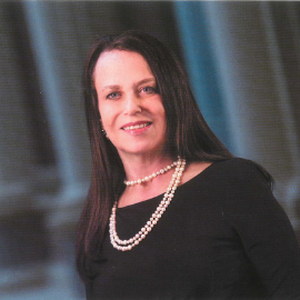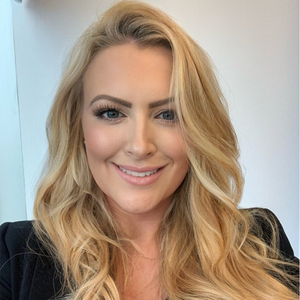
Archana Kotecha
CEO and Founder of Remedy ProjectArchana is a UK qualified barrister and London School of Economics graduate who started her career practicing corporate law with KPMG then with DLA Piper. After 7 years as a corporate lawyer, Ms. Kotecha joined the UN Refugee Agency's Legal Protection Team in London and subsequently the Immigration Advisory Service and Stop Trafficking UK in London. She has worked on a number of trafficking related asylum cases and produced an anti-trafficking toolkit for UK lawyers. She has served on the Victim Care Committee of the UK Human Trafficking Centre that was instrumental in the efforts to set up the National Referral Mechanism of the UK in 2009. She was also a committee member of the NSPCC's anti-trafficking hotline and contributed to a number of anti-trafficking and refugee stakeholder groups in the UK.
Following a move to Hong Kong, Ms. Kotecha joined Liberty Shared. Until recently, Archana was the Head of Legal and Asian Region Director for Liberty Shared. While at Liberty Shared, she produced a Hong Kong focused Victim Identification Toolkit/NGO training, set up an online Legal Resources Centre (housed on Liberty Shared’s website) and has been involved in lobbying the Hong Kong Legislative Council and advising human rights practitioners and governments on trafficking in persons and forced labour. At Liberty Shared, Archana was also responsible for running regional legal projects including a regional Legal Impact Hub that focused building access to justice for victims and promoting creative use of laws across the region to combat trafficking by promoting a better understanding of laws, using strategic litigation and forging better partnership amongst various stakeholders within and across borders.
Disrupting activities’ of traffickers by improving modern slavery’s visibility within financial institutions, educating NGOs and lawyers on anti-trafficking legal frameworks and victim identification have also been key aspects of Archana’s work. Through her work with Liberty Shared, Archana engaged extensively with financial institutions, regulators and other corporations with a view to improving due diligence efforts to highlight human rights related risks and liabilities. In addition, she has been focusing on the application of anti-money laundering frameworks and existing risk structures within these institutions to identify and disrupt human trafficking networks.
Archana is recognized as a regional subject matter expert and regularly advises various ASEAN bodies and specialist inter-agency teams in different countries in the region. In June 2017, Ms. Kotecha was named as one of the top ten innovative lawyers in Asia Pacific by the Financial Times Asia and she is also an alumni of the prestigious International Visitor Leadership Program run by the US Department of State. Archana was named in the Diversity List 2020 and is also a Social Standards committee member of the Asian Seafood Improvement Collaborative and an honorary Legal Lead for The Zubin Foundation’s Call Mira Helpline.
As of November 2020, Archana has assumed the role of Founder and CEO of The Remedy Project, The Remedy Project is a start-up social enterprise providing expertise on global supply chain labour compliance and remediation mechanisms to help workers and businesses redress labour grievances and achieve fair, effective and enduring positive outcomes.

Karine Moreno-Taxman
Assistant United States Attorney at U.S. Department of JusticeKarine is an Assistant United States Attorney in the Eastern District of Wisconsin where she presently handles complex criminal investigations and prosecutions. Ms. Moreno-Taxman also has been detailed by the Department of Justice from 2007-2009 to Brazil, from 2009-2011 to Mexico, during June of 2016 to Panama. She just completed a two and half year detail to Malaysia where she provided mentoring and training regarding human trafficking to law enforcement, prosecutors, judges, NGO’s, members of civil society, and the private sector. She helped Malaysia create its first Multijurisdictional Human Trafficking Task Force and spearheaded Malaysia’s First Victim-Witness Assistance Program. Both have become permanent and central parts of Malaysia’s efforts to combat human trafficking. In Milwaukee, Wisconsin, she prosecutes both international and domestic commercial sex trafficking cases, forced labor cases, and other complex federal crimes. She was the Chair of the Eastern District of Wisconsin Federal Human Trafficking Task Force up until 2019.
In Mexico, she assisted the Government of Mexico in developing and institutionalizing programs to enhance their abilities to address corruption, money laundering, intellectual property rights violations, violent crimes, human trafficking, and gang activities. She also assisted the Mexican Government reform some of Mexico’s penal procedures to enhance Mexico’s ability to investigate and combat crime and to work with the United States. Ms. Moreno-Taxman assisted Mexico in creating their national Amber Alert program, which, to date, has saved over 700 Mexican children. In Brazil, because of the assistance she provided the Brazilian government, Brazil passed its first law that criminalized the possession of child pornography. In addition, she created a program that allowed Brazilian and U.S. authorities, working with the private sector, to identify those who may be victims of human trafficking before they were taken from Brazil to the United States.
Ms. Moreno-Taxman has trained prosecutors in the United States and abroad on how to conduct successful human trafficking prosecutions and the importance of working in a coordinated and proactive manner with non-governmental entities in both the private and public sector.

Oonagh van den Berg
Managing Director & Founder of RAW Compliance and Virtual Risk SolutionsWith over 18 years’ experience in a range of fields and disciplines within legal and financial services non-financial risk, Oonagh has built and lead various compliance risk frameworks and teams across the industry and developed and maintained regulatory and industry body relationships.
She is an advocate for ethical compliance leadership and framework development, with increased automation, including AI and Machine learning integration. She is also passionate about empowering people with the capabilities to address risk challenges through understanding behaviours to break down barriers and create cultures of morally imperative business-sensitive decision making